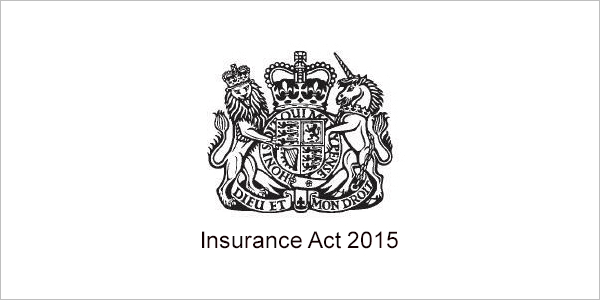
If you have even the slightest passing interest in insurance (understandable if you don't), you'll know it's ages old. Hundreds of years old, in fact.
Which makes it ripe for a spot of modernisation.
And that's exactly what the Insurance Act 2015 is designed to do. It's new legislation, from 12 August 2016, that'll fundamentally change some of the 'rules' of insurance as we know it.
Its component parts are many and varied. The changes likely to affect you and how you buy business insurance are, in the main, to do with how insurers look at your risk.
As that's what's most relevant to us day-to-day too, we'll focus on that for now.
So what's new in the Insurance Act 2015?
At the moment, an insurer can refuse to pay a claim, and 'void' a policy entirely, if it judges an 'insured' (the insurance industry calls customers 'insureds') has concealed certain details about their risk. The argument being that an insurer is covering a different risk to the one it thought it was covering, and therefore shouldn't be liable.
This right to withhold cover is regardless of whether the insured has deliberately or innocently left out this risk information.
That's all well and good but it leads to fairly obvious problems. For example, an unscrupulous insurer can refuse to pay a stolen property claim following a break-in, just because the policyholder inadvertently gave the wrong information about how the roof is made. A detail that doesn't actually change the circumstances of the claim, but is used by iffy insurers as a reason not to pay it.
The Insurance Act 2015 will change that by introducing something called 'fair presentation of risk'.
What's a fair presentation of risk?
In simple terms, a 'fair presentation of risk' is one that clearly states all material facts about a business. (A material fact is a fundamental, important bit of info that influences an insurer's decision to cover – or not cover – a risk.)
These material facts are things that, following a reasonable search, senior management and the person or department who sorts out the insurance know or ought to know.
Your duty to present a risk fairly is met if either all material facts have been disclosed, or you've provided enough information to prompt the insurer to ask you more questions.
So although now there's clearly more responsibility on more people to do more to sort out their insurance, it does mean there'll be fewer gaps for insurers to wriggle out of claims on spurious 'technicalities'. So, in theory at least, more claims will be paid.
Good news, we think.
What happens if you don't fairly present risk?
The Act doesn't change the fact that an insurer has the right to refuse a claim, and void a policy, if the risk it's insuring has been misrepresented or material facts haven't been disclosed.
What it does change is that, if a 'misrepresentation' is deemed reckless or fraudulent, the insurer not only has the right to refuse a claim and treat the policy as if it had never existed, but it can keep all the premium too.
That doesn't necessarily follow every risk that hasn't been presented fairly, but it does mean you need to be a little more thorough.
What do you need to do when the Insurance Act 2015 is introduced?
For starters, it'll help not to think about this as something that only affects other people. The Insurance Act 2015 will change what happens when you buy a new insurance policy and what happens when you make a mid-term amendment to an existing one.
However, how much changes depends on individual insurers and brokers. As is usually the case with insurance legislation, there are no specific directives laid out (which doesn't really help). The guidelines are open to interpretation and different insurers and brokers are approaching the Act in different ways.
Some are introducing new procedures, processes and paperwork; some are taking the view that they already do enough.
Nonetheless, the trickiest bit for you will probably be understanding what a 'reasonable search' is, and what kind of information you're expected to unearth. And there's no definitive answer to that, either.
In short, you're expected to disclose all material information about your business. If there's more than one person involved in your firm, you're expected to consult them and uncover material information and knowledge they hold too.
Those people will most likely be (not exhaustive):
> Senior management
> The person in charge of insurance
> Third parties, such as your accountant
Beware the data dump, though. When you present these facts, you have to make sure they're clear. Unfortunately, you can't just give the insurer a load of info and expect them to find the relevant things buried in it.
As always, if you're not sure, the best thing to do is ask.
If you want chapter and verse, the Insurance Act 2015 is explained in detail on the government's website.
claimsinsurance explained
